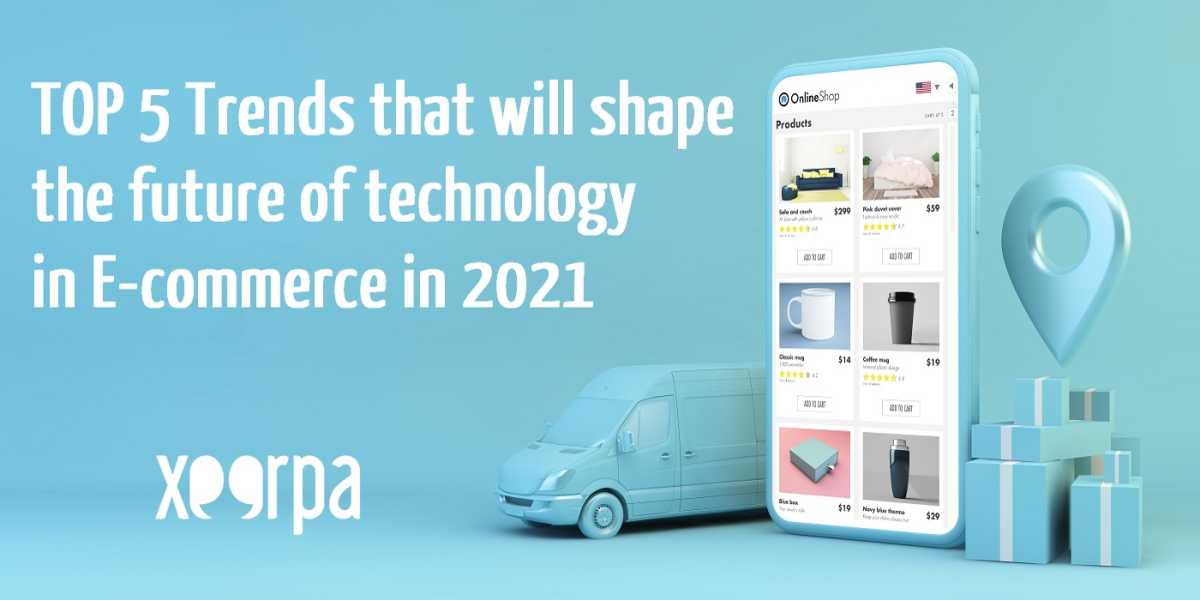Features
Trends Shaping The Future Of E-commerce

E-commerce has become an integral part of our daily lives, offering convenience and accessibility to consumers worldwide. As technology continues to evolve, it is crucial for businesses to stay ahead of the curve and adapt to the changing landscape. In this article, we will explore some of the key trends that are shaping the future of e-commerce.
Mobile Commerce (M-commerce)
In recent years, we have witnessed a significant shift towards mobile shopping. With the widespread use of smartphones and tablets, consumers are now able to make purchases anytime, anywhere. This trend is expected to continue growing as e-commerce platforms optimize their websites and apps for mobile devices. To remain competitive, businesses must prioritize mobile optimization and provide a seamless user experience across all devices.
Artificial Intelligence (AI) and Machine Learning
AI and machine learning are revolutionizing the e-commerce industry. These technologies enable businesses to personalize the shopping experience, from targeted advertisements to product recommendations based on individual preferences and browsing behavior. AI-powered chatbots also provide efficient customer support, answering queries and resolving issues in real-time. As AI continues to advance, its role in e-commerce will become even more critical.
Augmented Reality (AR) and Virtual Reality (VR)
AR and VR technologies have the potential to transform the way consumers shop online. With AR, customers can virtually try on clothes, visualize furniture in their homes, or even test makeup before making a purchase. Similarly, VR can provide immersive shopping experiences, such as virtual store visits and product demos. As these technologies become more accessible, e-commerce businesses will leverage them to enhance customer engagement and increase sales.
Voice Commerce
With the rise of virtual assistants like Amazon’s Alexa and Google Assistant, voice commerce is gaining traction. Consumers can now order products, check prices, and track deliveries using voice commands. As voice recognition technology improves, businesses need to optimize their websites and platforms to accommodate voice searches and commands. Voice commerce presents an opportunity for businesses to reach a wider audience and provide a seamless shopping experience.
Subscription-Based Models
Subscription-based models have become increasingly popular, offering customers convenience and cost savings. From subscription boxes to streaming services, consumers appreciate the convenience of having products and services delivered on a recurring basis. E-commerce businesses can capitalize on this trend by offering subscription options and tailored experiences, ensuring a steady revenue stream and loyal customer base.
Social Commerce
Social media platforms have become more than just a place to connect with friends – they are now a prominent avenue for e-commerce. With features like Instagram’s shoppable posts and Facebook Marketplace, businesses can showcase products directly on social media platforms. Influencer marketing also plays a significant role in social commerce, as influencers can promote products and drive sales. By leveraging social commerce, businesses can tap into a vast network of potential customers.
Same-Day Delivery and Fulfillment
Instant gratification is becoming the norm, with consumers expecting swift delivery of their online purchases. Same-day delivery and fulfillment options are gaining popularity, with retailers partnering with local delivery services or setting up their own logistics networks. Offering fast and reliable delivery will become a differentiating factor for businesses, ensuring customer satisfaction and loyalty.
Sustainability and Ethical Practices
Consumers are increasingly conscious of the environmental and ethical impact of their purchases. E-commerce businesses need to adopt sustainable practices, such as reducing packaging waste and utilizing eco-friendly materials. Transparent supply chains, fair trade practices, and ethical sourcing are also important considerations for consumers. By prioritizing sustainability and ethical practices, businesses can attract and retain environmentally conscious customers.
Blockchain Technology
Blockchain technology offers secure and transparent transactions, making it an attractive prospect for e-commerce businesses. With blockchain, customers can have increased trust and confidence in the authenticity of products, ensuring counterfeit-free purchases. Additionally, blockchain can streamline supply chain processes by providing real-time visibility and traceability. As blockchain continues to mature, its adoption in e-commerce will revolutionize the industry.
In conclusion, these trends are shaping the future of e-commerce, and businesses need to embrace them to stay competitive. From mobile commerce to AI and machine learning, each trend offers unique opportunities for businesses to enhance the customer experience, increase sales, and build brand loyalty. By staying abreast of these trends and adapting their strategies accordingly, businesses can thrive in the ever-evolving world of e-commerce.










